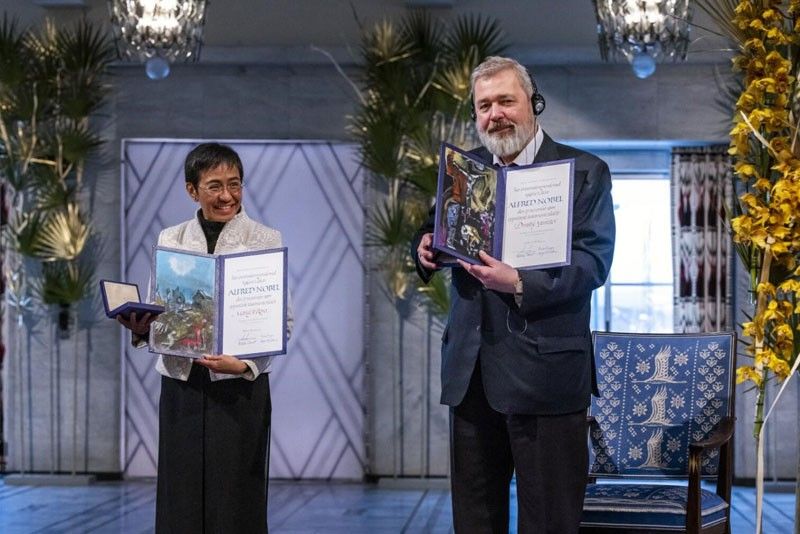How the digital-savvy youth can vote wisely amid fake news


MANILA, Philippines — The recent Nobel Peace Prize win of Filipino journalist Maria Ressa alongside Dmitry Muratov of Russia came at the best time as the Philippines struggles with freedom of expression. The award is a strong voice of support for speaking truth to power.
While the global prize is a step in the right direction, the fight continues in homes and in online social spaces where intentionally misleading and fake news are easily peddled as truth. This is also where external societal pressures can keep citizens especially the digital-savvy youth from voting wisely and with integrity.
With the 2022 elections a mere five months away, I revisited our Tita Jing It’s Monday episode where we discussed the fight against fake news with University of the Philippines Department of Political Science analyst and researcher Dr. Aries Arugay, National Citizens Movement for Free Elections (NAMFREL) member and professor Albert Oasan, NowYouVote2022 program head Josh Mahinay, and GoodGovPH founder Dexter Yang.
So, the boiling question: How can we teach the younger gen to vote wisely amid fake news and other external pressures shrouding their personal spaces? Likewise, how can they teach us to do the same?
Learn to spot and avoid fake news
For all of us, an insidious concern present even during the 2016 national and 2019 midterm elections again shows its face: The spread of fake news campaigns and trolls. We watched grave disinformation campaigns left and right, like a presidential bet asking for P1 billion to be the running mate of Vice President Leni Robredo and Sen. Panfilo Lacson and Senate President Vicente “Tito” Sotto III backing out of the 2022 elections.
To tackle these concerns on a personal level, Yang advocates for us to be thorough. “Kapag may nakita kang news na mukha siyang legit, i-Google mo muna kung totoo ba ito, kung mayroon bang three to five na (legitimate) news articles or news sources na nag-ve-verify doon.”
“Sa campaign namin sa kabataan, mahalaga na lagi naming sinisingit yung parang pag-uusap tungkol sa how to discern, how to spot, and what to do with it. Maraming mga sessions na ginaganap noon,” shared Mahinay.
I have also seen how some malicious actors intentionally copy the logos of legitimate news sources to trick people to share. While many are parody accounts, a lot more are fake news generators.

“Unfortunately, para sa FB (Facebook), if you consume fake news or if you go to fake news groups or FB pages, the more that FB will feed you with those sources of disinformation,” reminded Dr. Arugay. “So I think one tip is to identify these pages and to report them as fake news.”
It can be difficult to confirm if news is fake or objective, but it can be done. Dr. Arugay shared that this process requires critical thinking and the use of reliable sources. In this world, he said, “Ang objective is you can verify it from multiple independent sources. Pag nagawa mo iyon, that means, malamang hindi iyon fake news.”
Youth, take social studies and programs seriously
For the youth, Dr. Arugay highlights the need to take social science and social studies—like history, politics, and economics—seriously. “That will equip you (with) the tools to do fact checking, to be able to verify information. May value yung mga asignaturang ito. They have a role to play particularly in nation building.”
Prof. Oasan looks at yet another tool for the youth to take seriously: The National Service Training Program (NSTP). The program is aimed mostly at the youth in the same age as most first-time voters. “Take your NSTP seriously and make the elections a form of community service, an act of civic consciousness,” he advocated.
Parents and guardians, respect the youth vote
For parents and guardians, Dr. Arugay left the following reminders: “First, don’t patronize our young Filipinos. Hindi dapat ang treatment natin sa kanila ay mga batang hindi kaya mag-isip at mag-desisyon. We treat them as sovereign voters. Huwag natin silang tanungin sino yung iboboto nila kasi iyong information na iyon ay sagrado.”
He stressed, “Let’s not decide for them. Let’s not impose iyong sources of information. Kung tama iyong pagpapalaki natin sa mga kabataan, then we must trust that they can make their own decisions and that voting itself is a learning process.”
Yang notes how student groups can help the youth. “Dito, madidispel yung part na kapag kabataan ka, susundin mo lang yung sinabi ng nanay o tatay mo. Kapag nakita nila na yung kabataan pala, pwede pala tayong bumoto on our own.”
For advocate groups and volunteers, Oasan noted, “Maganda rin natin na tingnan ang eleksyon sa local level, kasi nakatingin tayo sa taas, minsan, nakakalimutan natin ang local issues which are close to the heart of young people.”
***
Watch Pamilya Talk on Facebook, YouTube, and Kumu (@JingCastaneda – 5:30-7:00 p.m. Monday, Tuesday & Wednesday). You can also follow my social media accounts: Instagram, Facebook, YouTube, Twitter, and Kumu. Please share your stories or suggest topics at editorial@jingcastaneda.ph.



















